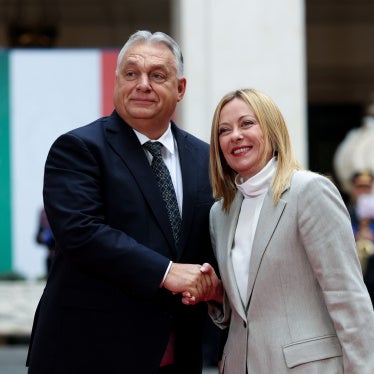The British government’s concern for the safety and well-being of the Yemeni people – already extremely feeble – reached a new low this week. In Geneva, Britain failed to actively promote a Dutch resolution at the United Nations Human Rights Council that called for a credible international investigation into violations of international humanitarian law, the laws of war, by all sides to the Yemen conflict.
Yet three weeks ago, the British ambassador to the UN in Geneva was saying on Twitter: “The Dutch are going to run a Resolution on #Yemen in the UN Human Rights Council. We will support.” A week later, he reacted to UNICEF’s statement on the death of 466 children in Yemen since March by stating: “466 reasons why the Dutch resolution on #Yemen at #HRC30 is so important.” Britain’s positioning this week makes it pretty clear that ministers in London instructed diplomats in Geneva to back off.
In the absence of active support from Britain, but also from the United States and France, the Dutch draft was withdrawn, replaced by a deeply flawed Saudi/Arab Group text with no mention of an international investigation. The level of reporting will be similar to a year ago – ignoring the dramatic deterioration in the country. The conclusion is inescapable: high-level advocacy by the Saudis and others scuppered this very modest effort to start a process for justice and accountability for serious abuses in Yemen.
The war in Yemen has killed at least 2,350 civilians since March, most from airstrikes by the Saudi-led coalition of primarily Gulf states. Just this week, as many as 130 civilians, including women and children, were killed in an airstrike that hit a wedding party. The humanitarian consequences of this conflict are appalling, exacerbated by the coalition’s naval blockade of Yemen’s main ports – 80 percent of Yemenis need humanitarian assistance and 1.5 million are internally displaced.
Britain has supported the Saudi-led coalition. This includes approving 37 export licenses for military goods for Saudi Arabia since March, alongside technical support and British liaison personnel in Saudi and coalition military headquarters.
Human Rights Watch and others have documented numerous coalition airstrikes that have caused indiscriminate or disproportionate civilian casualties in violation of the laws of war, some of which may amount to war crimes. But there is no evidence to suggest that Britain has meaningfully condemned or acted to prevent laws-of-war violations by coalition forces. In fact, British ministers and officials continue to assert – shamelessly and disingenuously – that they have no evidence of international humanitarian law violations.
Indeed, they go one step further. The Middle East minister, Tobias Ellwood, has said that “We have received assurances from the Saudis that they are complying with International Humanitarian Law and we continue to engage with them on those assurances.” In other words, the British government will uncritically accept claims that rights violations are not occurring from a government that routinely violates human rights.
A better response would surely be to champion a credible investigation of abuses by all sides to the conflict and hold perpetrators to account. The response of the British and other governments this week has denied justice and real accountability to the Yemeni victims of this war.









